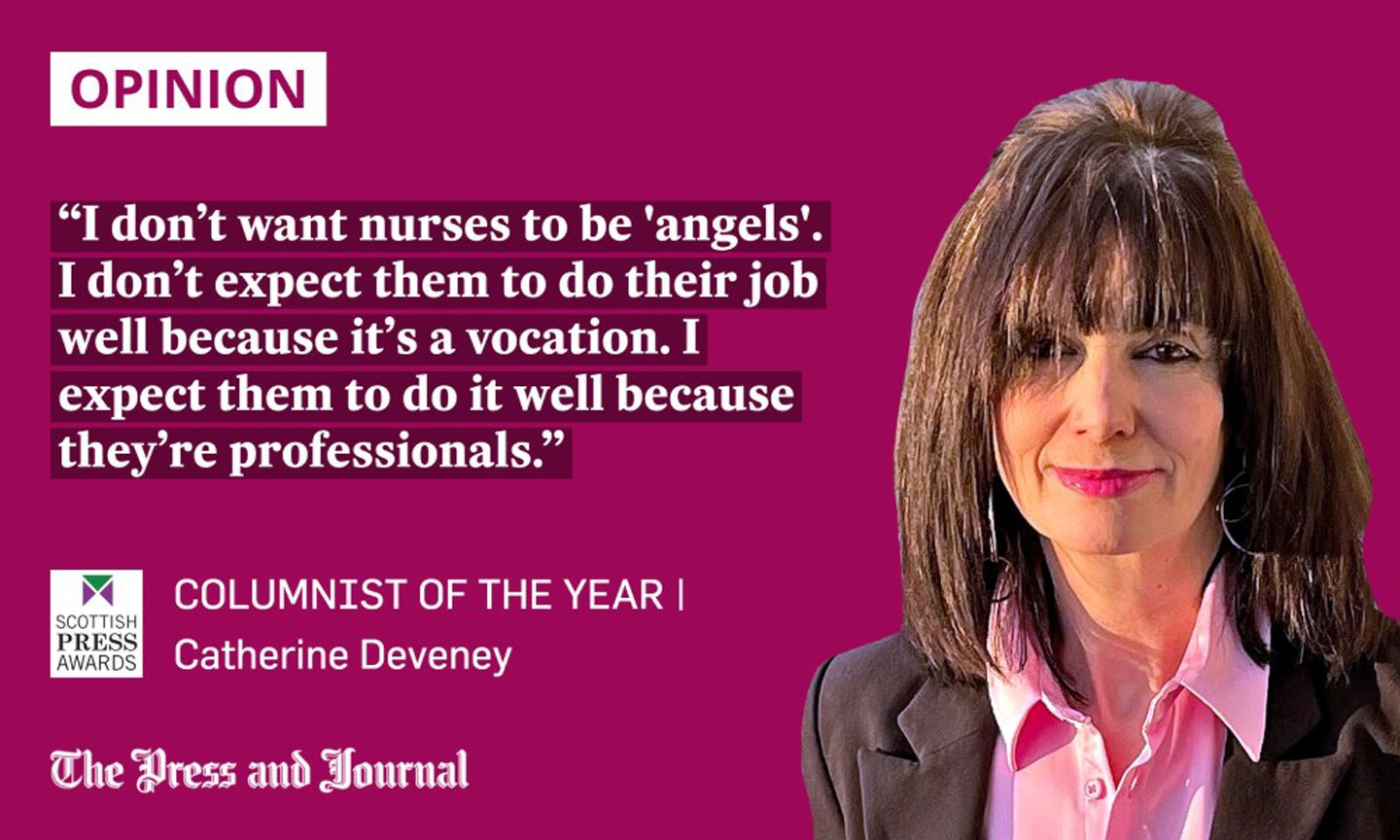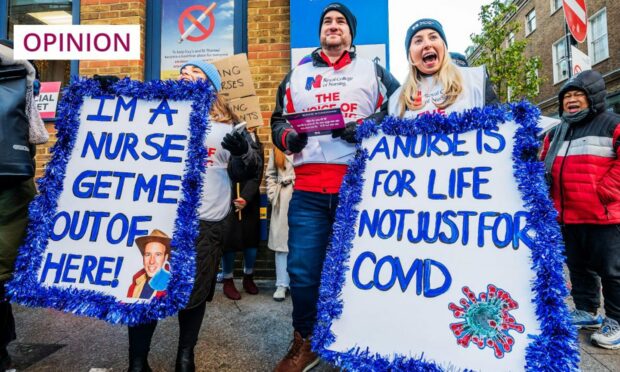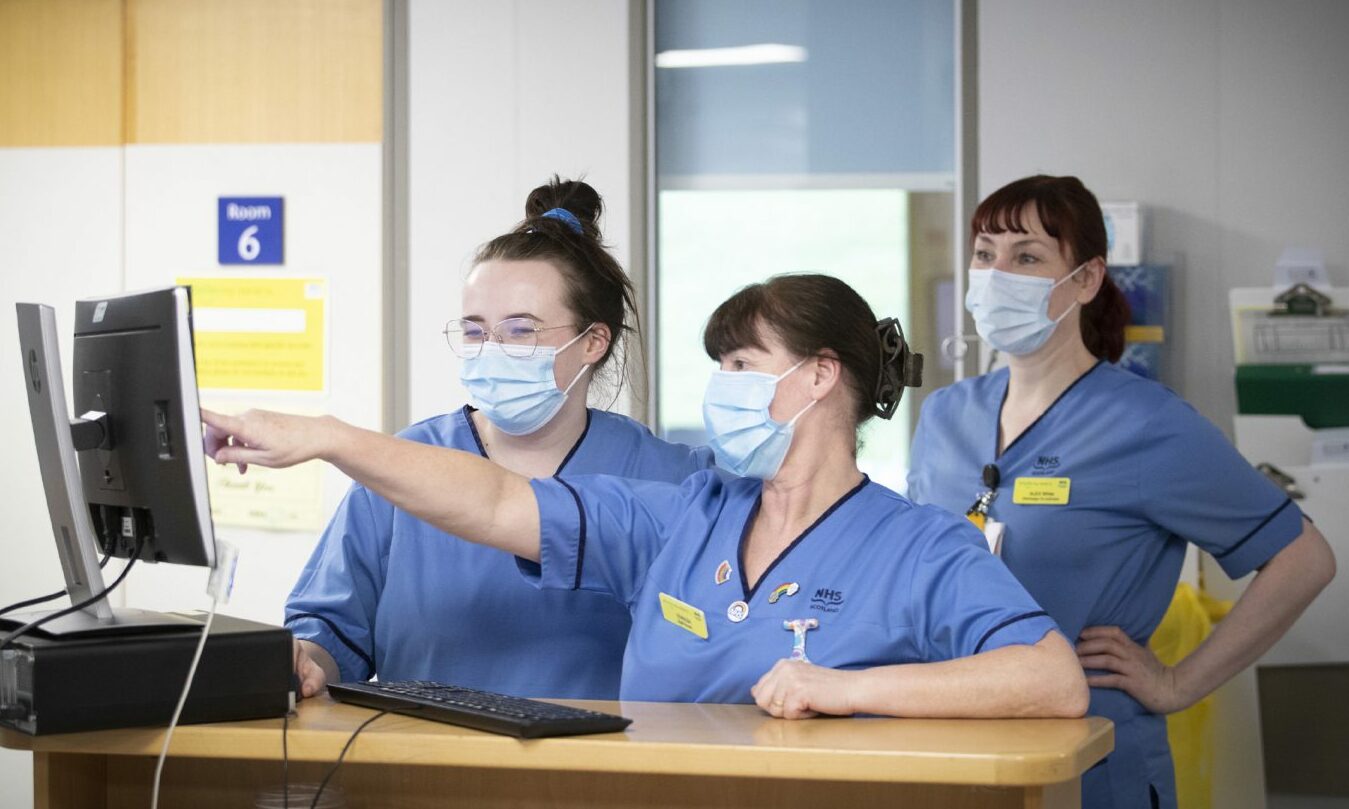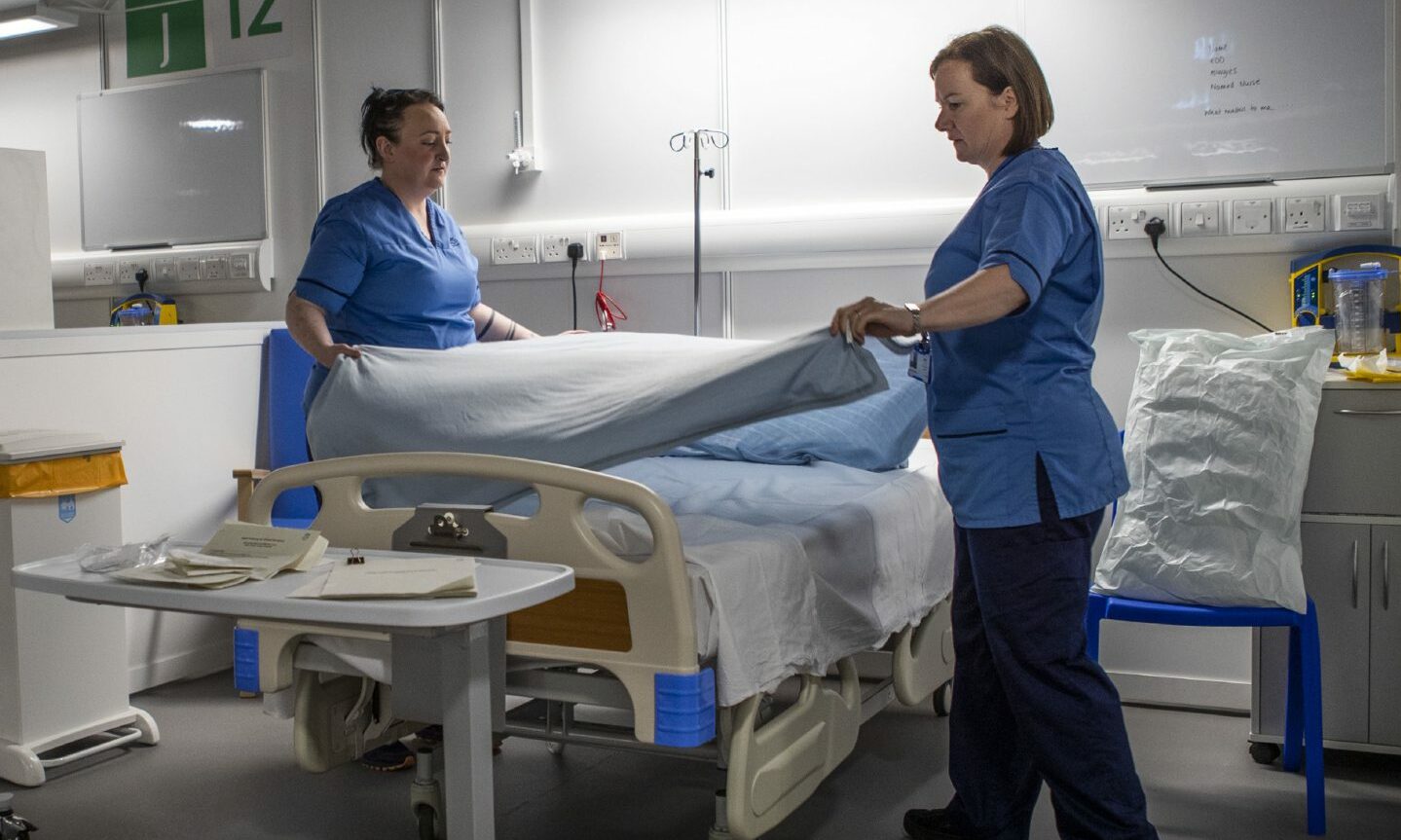There is a correlation between pay and professionalism, motivation and respect, so upping nurses’ wages is in our best interests, writes Catherine Deveney.
The last thing you want, as a worker, is to hear your job described as “a vocation”, which is just the preamble to saying you should do it for reasons of public-spirited altruism, without anything as tainted as filthy lucre in recompense.
NHS nurses no doubt seethed when Northern Ireland Secretary Chris Heaton-Harris, who earns £81,144 a year as a politician, plus another £67,505 as a senior minister, said recently that it was “troubling and very, very sad” to hear of nurses relying on foodbanks, but he wasn’t sure how to put a price on what they did. What was a reasonable wage?
One, I’d venture, that enabled them to shop in a supermarket rather than a charity scheme.

Most people feel uneasy at the prospect of the first nurses’ strike in history. On an emotional level, if we’re truly honest, there’s probably an instinctive: “How can you do that to the old, the sick, and the vulnerable?”
A better question might be: how can WE do it? How can we pay so little for such a necessary service? And, how can the Westminster government refuse to even enter negotiations, when the Scottish Government has found an extra 7.5%?
At #PMQs @StephenFlynnSNP points out the stark contrast between the negotiated @scotgov nurses' pay settlement in Scotland – and the chaos in England under the Tories.
— JOHN NICOLSON M.P. (@MrJohnNicolson) December 14, 2022
The result of the Royal College of Nursing (RCN) ballot in Scotland will be announced on Monday. If strike action is averted here, it will be a relief, but, in principle, nurses have the same right to strike as any other exploited worker; workers’ labour is a contract between two parties with equal responsibilities, not a charity donation.
Still, the current NHS turmoil is raising issues that are more complex than rights. The director of the RCN, Patricia Marquis, has said that NHS services are “not safe”. Having spent lots of time visiting hospitals in the last few months, I can only agree. Here is my experience…
How can you feel unsafe in a hospital?
The scream was blood curling. It reverberated round the ward, and the 94-year-old patient in the corner, who was struggling to breathe, whose eyes bled fear at the best of times, twitched in fright.
The patient I was visiting, whose maximum dose steroid was making her anxious and emotional, jumped too – but not as much as the first time it happened. The nurses, she said, jumped out on each other regularly for a laugh. “It feels,” she continued, “like this place is run by children. I don’t feel safe here.”
The disturbing things you are witnessing are not one-offs, but part of a cultural deficit
Her words haunted me when I left. How can you not feel safe in a hospital?
That’s why her fantastic consultant admitted her in the first place: to be safe. And you trusted, at first. Felt so grateful for that reassurance. Over weeks, though, it becomes clear that the disturbing things you are witnessing are not one-offs, but part of a cultural deficit.
The old woman repeatedly left on a commode with the toilet door fully open. The patient lying on a bed, naked from the waist down, the curtains round her undrawn. The lack of concern for elderly patient dignity begins to suggest a level of disrespect, bordering on contempt.
There is something very troubling about the culture on some NHS wards, a lack of professionalism that, in other jobs, would be annoying, but, in nursing, is frightening.
At night, the staff shout down the ward, while patients try to sleep. Over a patient’s bed, two nurses discuss a night out, ignoring the old lady they are working with, who lies like meat on a butcher’s slab. My fellow visitor, an ex-nurse, observes in horror. Nurses were once reprimanded for such disrespectful behaviour.
I’ll opt for competence over caring
The 94-year-old cannot reach the buzzer, so other patients press for her when she needs help. They wait. Press again. Wait again. And wait. Uneasily, we visitors offer help.
A nurse approaches my patient’s bed. “Did I give you your medication?” She asks openly, “I can’t remember.” The frightening thing is not so much the mistake as the fact that she seems blissfully unaware of how unprofessional her question sounds, how loudly it rings alarm bells.
“Vocation” implies caring, and there is no doubt that good nurses – and there are plenty of them – have compassion. But, if it’s a choice between caring and competence, I’ll opt for competence, thanks.
Nurses asked for a 17% pay rise. “An awful lot,” says Heaton-Harris. Though, obviously, not as much of an “awful lot” as politicians get.
This is not just about pay. But there IS a correlation between pay and professionalism. Motivation. Respect. An unstated expectation of due standards for due compensation.
I don’t want nurses to be “angels”. I don’t expect them to do their job well because it’s a vocation. I expect them to do it well because they’re professionals. They should be paid as such. And, just maybe, when you make workers feel their services are valuable, they start giving valuable service.
Catherine Deveney is an award-winning investigative journalist, novelist and television presenter, and Scottish Newspaper Columnist of the Year 2022


